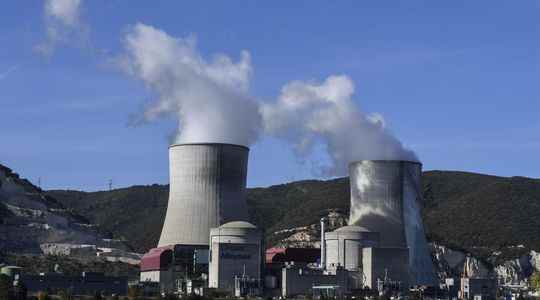USA, Japan, Netherlands, France, etc. : nuclear energy is back in the energy policy options. A quiet return that contrasts with the thundering announcements of the sector on the “renaissance” of nuclear power in the second half of the 2000s. After the post-Chernobyl nuclear winter, countries then began to rebuild and newcomers launched into the conquest of nuclear energy… Then came Fukushima, announcing a new winter for the atom, except in China and Russia which continued both their research and development of new reactors and their commercial expansion. It was time, once again, to freeze, or even cancel, projects when it was not quite simply a question of leaving nuclear power for good: theEnergiewende German (energy transition) was all the rage…
The caution of the Western nuclear industry is wise. Twice, she experienced political versatility in the face of popular emotion after the Chernobyl and then Fukushima accidents, even though their lethal impact had nothing in common. However, it would benefit from being both more ambitious and more confident in its future. It is time for it to put an end to the era of doubt: the context in which the revival of nuclear power is played out in 2022 has nothing to do with that of the 2000s.
The time is over for a face-to-face between national states and historical behemoths of the sector, electricians or technology manufacturers. Under the accelerating effect of climate change, scientists are now on board, affirming loud and clear that there will be no fight for the climate without nuclear ambition. Beyond that, other players are now part of the nuclear renewal equation. Alongside States and traditional players, civil nuclear power has now also become the concern of the world of innovation, investors in start-ups and tech magnates.
The death of the old nuclear monopoly
In this last category, Bill Gates is obviously emblematic: he has been investing continuously since 2008 in new generation nuclear power with Terra Power which, supported by American public credits in the 2010s, aims, neither more nor less, than to restore American export leadership by creating a new standard. Since then, Jeff Bezos, the founder of Amazon, has joined the club of tech magnates investing in nuclear power, in fusion for his part.
Energeticians and electro-intensive industrialists are now also involved, as are local authorities. In Poland, in parallel with the classic nuclear project of high-power reactors supported by the government, putting the traditional players in competition – EDF and Westinghouse in particular -, there are manufacturers in the fossil fuel sector (ZE Pak, PKN Orlen), groups mining companies (KGHM) or even chemists (Grupa Azoty) who are working on ambitious small modular reactor (SMR) projects.
The arrival of new actors – political, economic, financial, academic – in the nuclear world is not only the guarantee of greater technological diversity. It means more competition for traditional players who have to completely question themselves. It means more innovation, therefore an abundance of projects, i.e. more options for politicians who may have felt trapped by the asymmetry of information and knowledge in the face of legal or de facto monopolies playing on their expertise. technical. Europe is facing a dramatic energy crisis which results from an almost systematic suppression, over the past years, of energy policy options through ideological blindness and naivety, even geopolitical compromise; a sector that will be able to offer options for an abundant and low-carbon energy supply has all the assets.
Is the old nuclear monopoly dead? That is. It remains to seize the opportunity to quickly build the new one by looking ahead, instead of replaying the 1970s with nostalgia through energy planning or the nationalization of EDF… without the ambitions of then. The sector needs a new contract, not a trusteeship full of distrust against a backdrop of speeches with Pomidolian accents. Let it breathe the air of freedom and the open sea in exchange for a guarantee of scrupulously and regularly controlled results.
